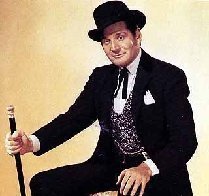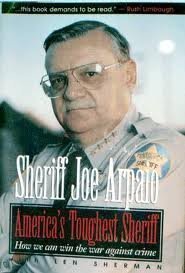
Etymology is rarely an exact science. Words or phrases spring up, become popular, and eventually may find their way into print. The process takes time, and it’s usually difficult or impossible to track backwards to discover where a particular word or phrase arose.
Let’s start with cop. Cop the noun is almost certainly a shortening of copper, which in turn derives from cop the verb. The London police were called bobbies, after Sir Robert Peel who advocated the creation of the Metropolitan Police Force in 1828. Copper as slang for policeman is first found in print in 1846, according to the Oxford English Dictionary. The most likely explanation is that it comes from the verb “to cop” meaning to seize, capture, or snatch, dating from just over a century earlier (1704).
The derivation of the verb is unclear. Most authorities trace it to the French caper and before that to the Latin capere, to seize, take. Other English words derived from capere include capture. Thus, a copper is one who seizes. An alternative theory is that to cop comes from the Dutch kapen, meaning to take or to steal.
The word “cop” has other meanings as well, all connected to “catch” or “snatch”:
- To “cop out” meaning to withdraw or escape, or to evade responsibility
- To “cop it” meaning to be punished or get caught
- To “cop a plea” is to try to catch a lesser punishment by admitting to a lesser crime
- “A fair cop” means to be caught in the act.
As with many words, there are several stories floating around positing various origins, almost certainly false. The notion that cop is an acronym for “Constable On Patrol” is nonsense. Similarly, the word did not arise because police uniforms in New York (or London or wherever) had copper buttons, copper badges, or anything of the sort.
The term cop has had derogatory implications. J. Edgar Hoover, the longtime head of the FBI, disliked being called “top cop.”
The origin of “fuzz” is uncertain. The expression arose in America in the late 1920s and early 1930s, probably in the criminal underworld. It never quite replaced cop.
Evan Morris, The Word Detective, says:
There are several theories about the origin of “fuzz”:
- American Tramp and Underworld Slang, published in 1931, suggests that “fuzz” was derived from “fuss,” meaning that the cops were “fussy” over trifles.
- A mispronunciation or mishearing of the warning “Feds!” (Federal agents). This seems unlikely.
- Etymologist Eric Partridge wonders if “fuzz” might have come from the beards of early police officers. This also seems improbable.
The term is not related to Fuzzy Wuzzy who wuz a bear. (You didn’t ask, but the term “bear” for police refers to the Smokey the Bear hat commonly worn by state troopers.)
Evan Morris suggests the word “arose as a term of contempt for police based on the use of ‘fuzz’ or ‘fuzzy’ in other items of derogatory criminal slang of the period. To be ‘fuzzy’ was to be unmanly, incompetent and soft. How better to insult the police, after all, than to mock them as ineffectual?” That explanation seems as good as any, and better than most.
If you thought the term pig arose in the 1960s, you’re in for a surprise. The OED cites an 1811 reference to a “pig” as a Bow Street Runner — the early police force, named after the location of their headquarters, before Sir Robert Peel and the Metropolitan Police Force (see above.) Before that, the term “pig” had been used as early as the mid-1500s to refer to a person who is heartily disliked.
The usage was probably confined to the criminal classes until the 1960s, when it was taken up by protesters. False explanations for the term involve the gas masks worn by the riot police in that era, or the pigs in charge of George Orwell’s Animal Farm.
While police officers usually don’t mind being called “cops,” they aren’t usually fond of the term “pig.” A policeman’s lot is not an ‘appy one.
Cop also stands for Constable on patrol.
By the way, the French call their police gendarmes, which came from gens d’arme (people with weaponry) which ranked just below knight in medieval armies — the English equivalent would be “esquire,” perhaps. No, somehow I don’t think calling the police “squires” will catch on here.
- 1 1/2 cups shredded mozzarella cheese, divided
- 1 cup chopped frozen buffalo chicken strips, cooked according to package directions, divided
- 1/2 cup chopped celery, divided
- 2 (10-inch) flour tortillas
- 1 tablespoon butter
- Blue cheese dressing (optional)
- Sprinkle 3/4 cup of cheese, 1/2 cup of chicken, and 1/4 cup of celery evenly over one half of one tortilla. Repeat with remaining tortilla.
- In a large skillet or griddle over medium heat, melt butter.
- Place one tortilla, toppings side up, on skillet and cook 30 seconds, or until cheese begins to melt. Using a spatula, fold the tortilla over in half and cook 1 to 2 more minutes, or until the cheese is completely melted. Flip and cook an additional 30 seconds, or until both sides are golden brown. Repeat with remaining tortilla.
- Slice each tortilla into four wedges and serve with blue cheese dressing, if desired.
1932 – Joe Arpaio, American law enforcement officer
1961 – Boy George, British singer (Culture Club)
HOW TO OBSERVE
NATIONAL FLAG DAY HISTORY
HOW TO OBSERVE
- Share memories of your military service in the Army.
- Buy an Army veteran a meal or drink.
- Donate to your favorite veteran’s organization.
- Volunteer your time with a veteran’s organization.
- Raise the Army colors at your home or business.
- Exercise your right to vote.
- Offer an Army veteran an interview when they apply for a job at your place of business.
- Offer an Army spouse an interview when they apply for a job at your place of business.
- Show support to a military family through deployments, moves, and transfers.

















1 comment:
My first job LAPD in 63. I know you miss Jerry with every beat of your heart. I am sure he is watching over you and misses you too.
Post a Comment